We use cookies, along with some third-party sites (like Google, Facebook, etc.). By continuing to visit this site you agree to our use of cookies.


- Search Yachts
- Destinations
- Company
- Sailing info
- Blog
Need help? Contact us
If you want to learn more about course itself visit:
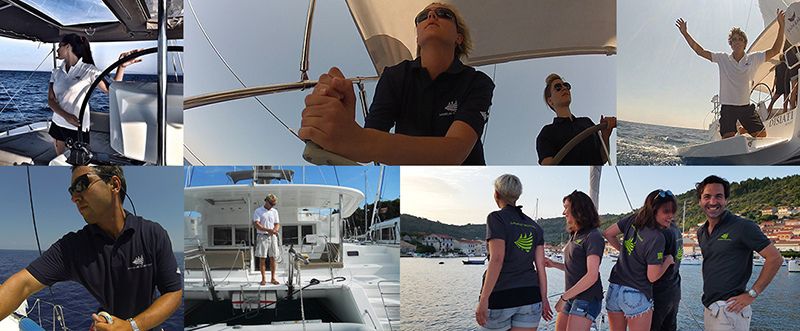
If you will be sailing bareboat on your Croatian Yacht Charter Holiday (read about pros and cons) one topic you will need to know about is anchors and anchoring.
Anchors are of course the actual heavy devices that you drop to keep your ship in one place. Anchoring refers to the art of dropping the anchor properly and safely in an appropriate location.
• Plough
• Danfort
• Rocna
• Bruce
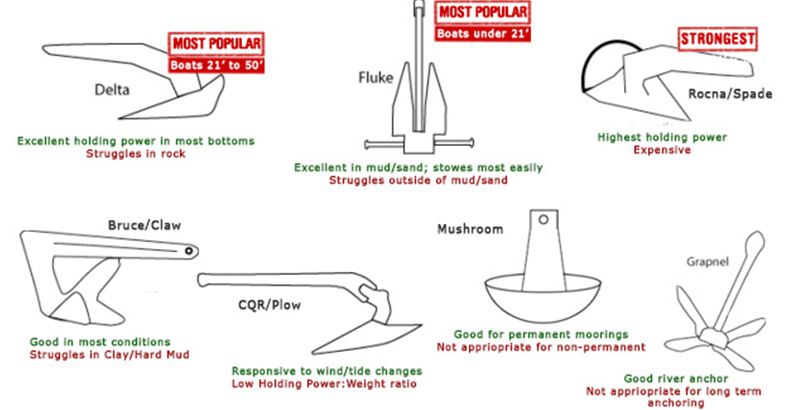
Different types of anchors are suited for different seabeds. Thankfully this isn’t an aspect of anchoring that you really need to worry about, because the vessel you charter in Croatia will already come equipped with the most suitable type of anchor for the waters in which you will be sailing.
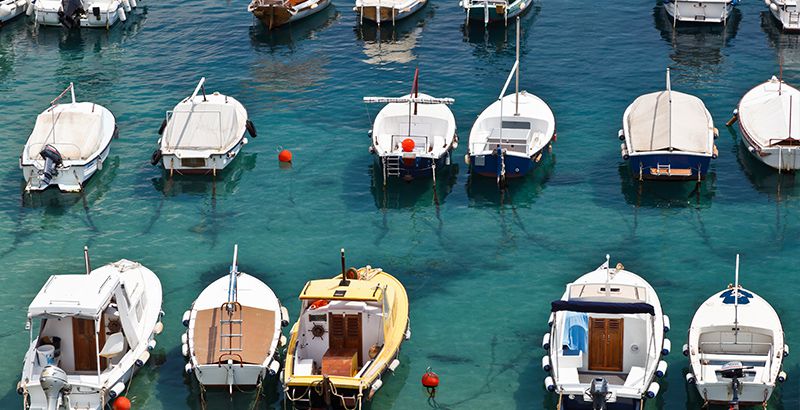
• Docking: This refers specifically to tying up your boat at a dock. Docking is short-term.
• Berthing: This is similar to docking, except that it is long-term. If a vessel is stored somewhere the majority of the time, that is the ship’s berth.
• Mooring: You can “moor” your ship to any permanent structure. It does not have to be a dock. It could for example be a buoy.
• Anchoring: This is a short-term way of parking your boat without the need for a permanent fixture. The anchor finds purchase on the seabed, and the boat stays in place. You can anchor in some of the beautiful calm bays of Croatia for free.
While there are technical differences between each of these terms, many people casually interchange them. This is less common among actual experts and pros, and more common among tourists who are relying on a skipper or crew.
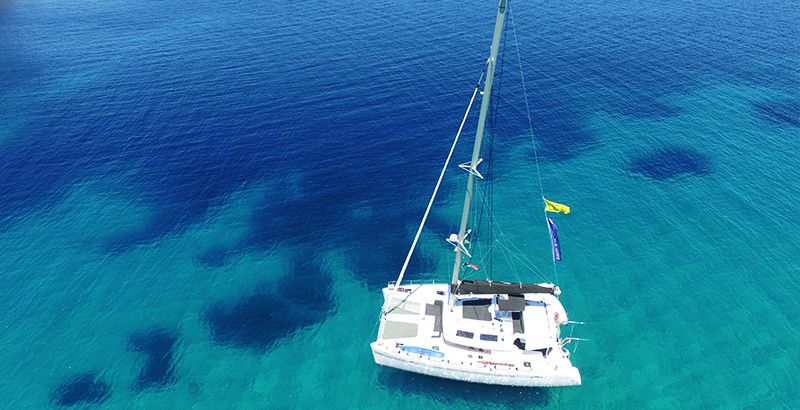
You cannot anchor your boat just anywhere (learn how to avoid fines). You need to choose a location which is safe.
To do this, consult piloting handbooks and navigational charts on Croatia’s coastline and archipelagos. These guides will give you information about the seabed.
Seabed materials can vary a good deal. In some spots, you will find sand, while in others, rocks. In still other areas, there may be mud, weeds, shells, or coral, which may in turn be living or dead. Some seabeds will hold an anchor well while others will not be as good a choice.
Also pay attention to the wind and the waves. The best spots to anchor are sheltered bays and inlets where the water tends to be serene and the breeze is not too harsh.
Along with consulting your handbooks and charts, you can also ask around about good spots to anchor. Many marine experts in the area will be happy to give you their advice.
Once you do find a location to anchor your Croatia charter yacht, you will need to execute the manoeuvre itself.
1. Point the bow of your vessel into the wind.
2. Drop the anchor, releasing the chain.
3. The anchor will drop down to the seabed. When it makes contact, continue to release the chain. As you do so, manoeuvre the vessel backward.
4. Eventually, you can quit releasing the chain. But at this point, you should continue to back up the boat. This will result in a stretch throughout the chain while the anchor digs down into the seabed.
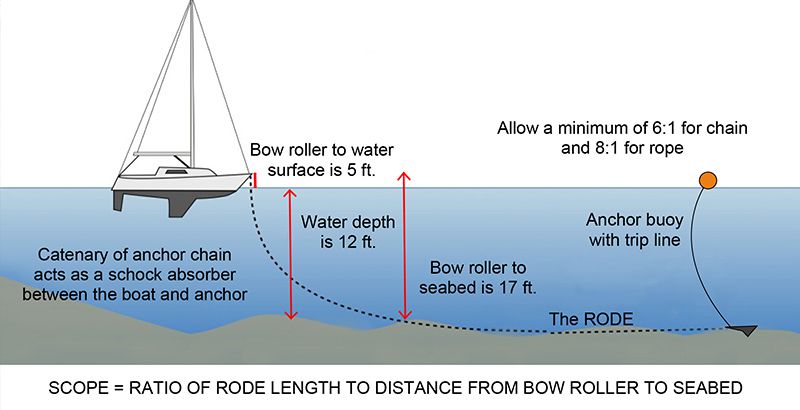
Generally speaking, the chain is expected to be around four times as long as the depth of the anchor. So that is how far you should back up the boat. But this may vary depending on the conditions where you area anchoring.
You are not quite done at this point. You need to check around and take note of landmarks in your surroundings. These will provide you with points of reference to notice if the anchor is ploughing and the boat is drifting.
Also take note of the radius of movement you can expect around the anchor if the wind changes. Do you have enough space, or is it possible the vessel will collide with others, or with rocks, fixed structures, or other obstacles (perhaps even shallow parts of the seabed)? Is there any possibility of chains crossing? Once you are sure you are in good shape, you are done anchoring. In some cases, you may need to make a few attempts to get it right.
• When you arrive at an anchorage, if someone is there before you, let them complete their anchoring manoeuvre before you follow suit.
• Give others as much space as you can.
• Turn on the anchor light at sunset.
• Someone onboard should preferably be awake while anchored. Someone will need to stand watch while the others sleep.
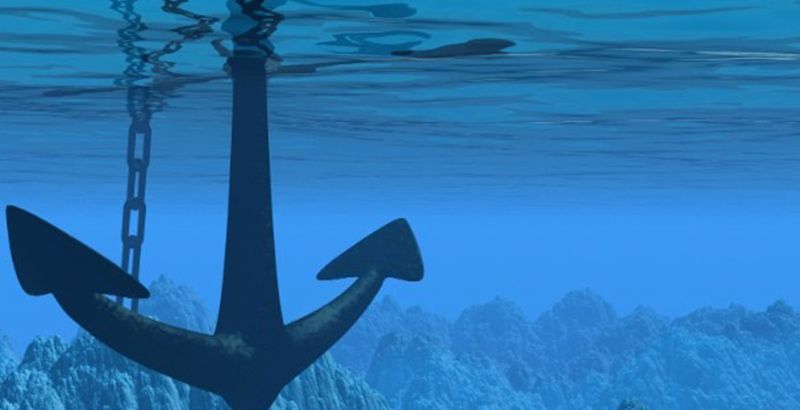
And that is pretty much all there is to it. If it sounds simplistic, that is because anchoring really is quite a straightforward procedure. It takes practice to really get it down. Consider it all as part of your Croatia charter holiday adventure.
Learn To Sail: Beginners Sailing Guide
Learn To Sail: Nine Simple Sailing Knots Everyone Should Know
How To Choose the Right Vessel For Your Sailing Vacation
Sailing Routes: 7-Day Dalmatian Sailing Itinerary
Marin @Danielis - November 21, 2017.
5 House Rules You Should Follow Onboard While Sailing
Marin @Danielis - May 19, 2017.
Top Places to Go Snorkeling in Croatia
Marin @Danielis - February 16, 2017.
5 Reasons Why Sailing Is The Best Way To Travel
Marin @Danielis - July 25, 2017.
10 Tips on how to prepare for a Sailing Holiday in Croatia
Marin @Danielis - November 07, 2017.